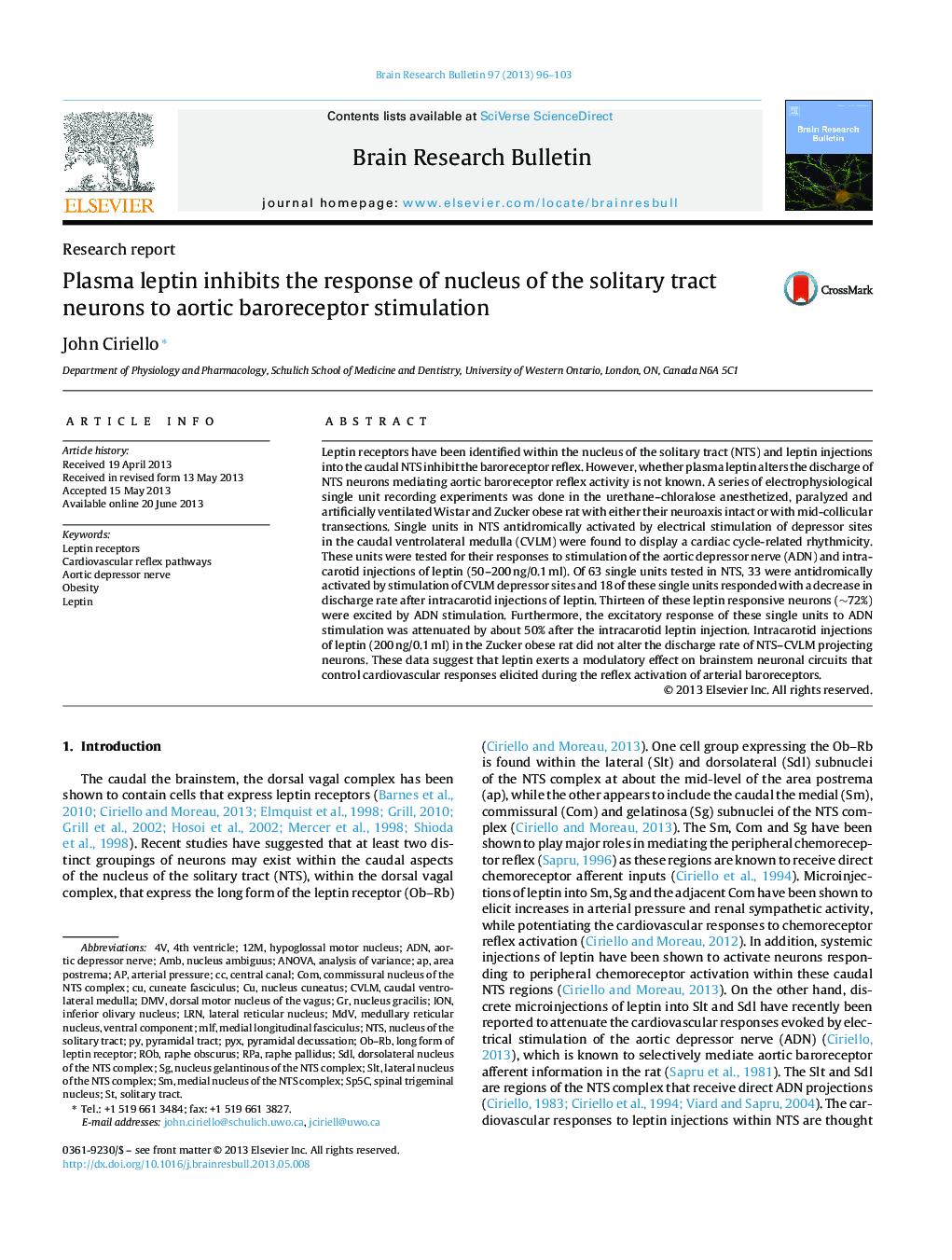| Article ID | Journal | Published Year | Pages | File Type |
|---|---|---|---|---|
| 4318937 | Brain Research Bulletin | 2013 | 8 Pages |
•Extracellular single unit recordings were made from NTS neurons.•NTS–CVLM projecting neurons receive aortic baroreceptor inputs.•NTS–CVLM projecting neurons inhibited by intracarotid injections of leptin.•Intracarotid leptin injections attenuate ADN response of NTS neurons.•Leptin acts NTS to modulate aortic baroreceptor reflex.
Leptin receptors have been identified within the nucleus of the solitary tract (NTS) and leptin injections into the caudal NTS inhibit the baroreceptor reflex. However, whether plasma leptin alters the discharge of NTS neurons mediating aortic baroreceptor reflex activity is not known. A series of electrophysiological single unit recording experiments was done in the urethane–chloralose anesthetized, paralyzed and artificially ventilated Wistar and Zucker obese rat with either their neuroaxis intact or with mid-collicular transections. Single units in NTS antidromically activated by electrical stimulation of depressor sites in the caudal ventrolateral medulla (CVLM) were found to display a cardiac cycle-related rhythmicity. These units were tested for their responses to stimulation of the aortic depressor nerve (ADN) and intra-carotid injections of leptin (50–200 ng/0.1 ml). Of 63 single units tested in NTS, 33 were antidromically activated by stimulation of CVLM depressor sites and 18 of these single units responded with a decrease in discharge rate after intracarotid injections of leptin. Thirteen of these leptin responsive neurons (∼72%) were excited by ADN stimulation. Furthermore, the excitatory response of these single units to ADN stimulation was attenuated by about 50% after the intracarotid leptin injection. Intracarotid injections of leptin (200 ng/0.1 ml) in the Zucker obese rat did not alter the discharge rate of NTS–CVLM projecting neurons. These data suggest that leptin exerts a modulatory effect on brainstem neuronal circuits that control cardiovascular responses elicited during the reflex activation of arterial baroreceptors.
